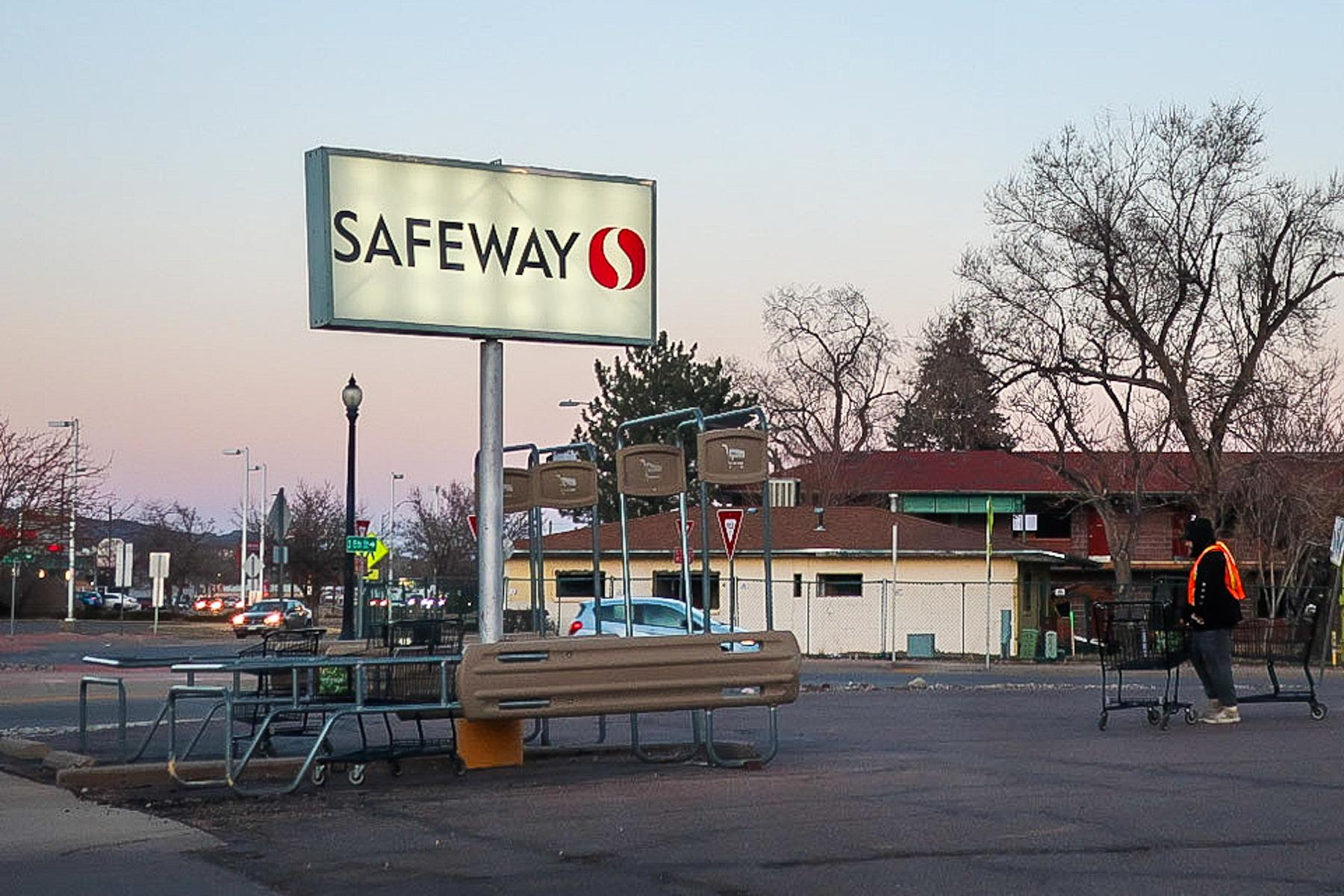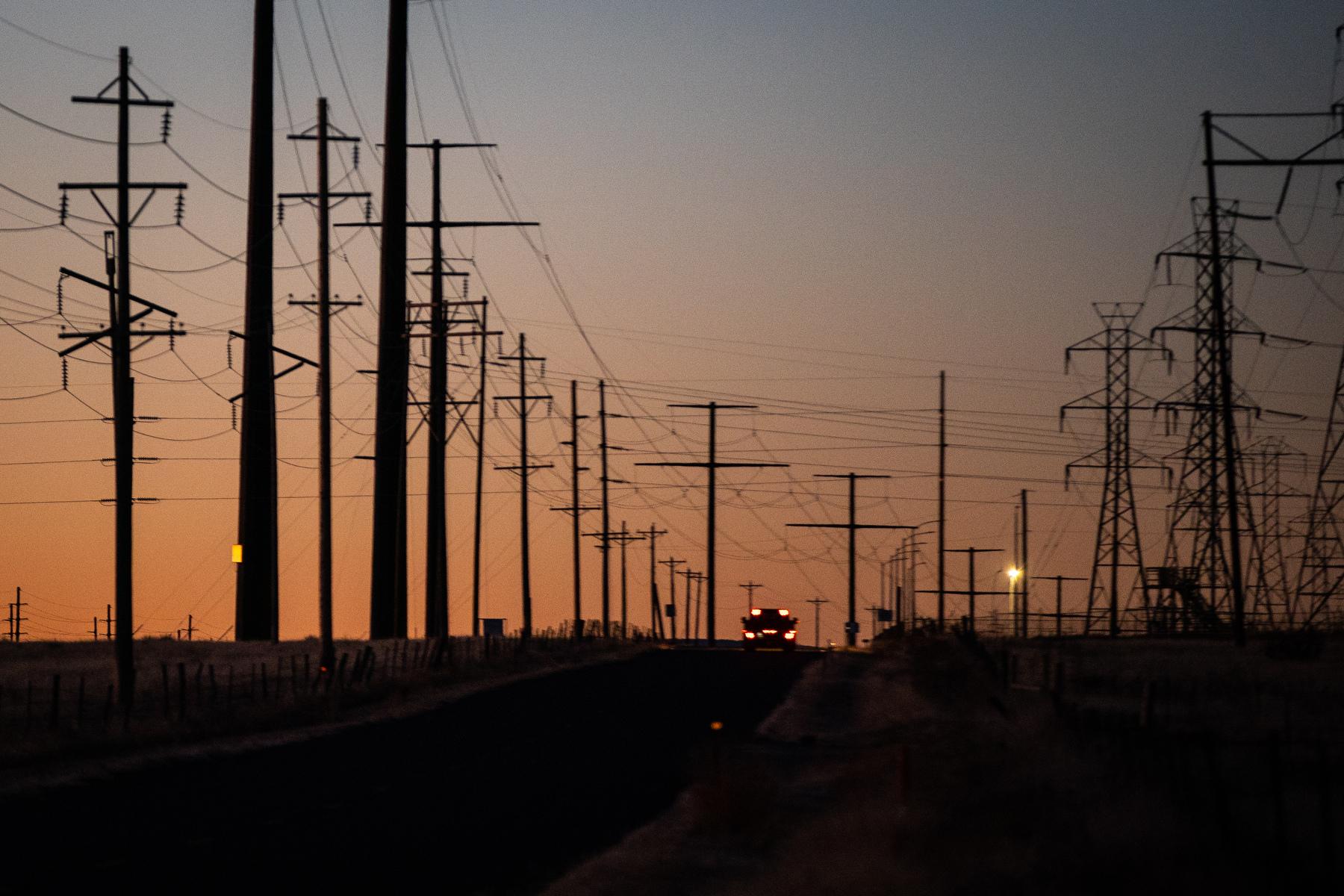
In a trend that appears to only be accelerating, nearly 30 percent of abortions in Colorado last year were for patients who crossed state lines. That figure about doubled from 2021.
That’s according to data provided to CPR by the Colorado Department of Public Health and Environment.
Out-of-state patients are traveling to Colorado — and other states — in record numbers to seek legal abortions. That’s because last year's decision by the Supreme Court to overrule Roe v. Wade eliminated the constitutional right to an abortion after almost 50 years.
“We've seen an increase in out-of-state patients in all of our health centers across our (national) system, and then certainly in Colorado as well,” said Adrienne Mansanares, the president and CEO of Planned Parenthood of the Rocky Mountains. “About two out of every five of our abortion care patients don't live in Colorado.”
This year, the trend is already evident in the preliminary health department data as of this month. The total number of abortions is higher than at this point in 2022, and so is the share of patients from out of state.
Colorado has recorded more than 3,100 out-of-state patients coming for an abortion so far in 2023. The number was about 2,000 as of the same time last year. A third of all terminated pregnancies in 2023 so far have been for non-Colorado patients. That compares with nearly 28 percent for all of 2022.
Twenty-two states now prohibit abortion or restrict it earlier in pregnancy than the standard established by Roe v. Wade, according to the NYTimes.
Some states ban the procedure altogether. Others prohibit it at six weeks gestational age or after fetal cardiac activity is detected.
“A lot of it is unsaid, just because it's been over a year now, and every time we see a patient from out of state, we don't even ask them like, ‘Oh, why did you come to Colorado?’ It's just kind of understood,’ said Dr. Nancy Fang, of the Comprehensive Women’s Health Clinic. “They weren't able or aren't able to get care in their state.”
Abortion is protected under Colorado law. However, a 1984 law forbids using state funds to cover the cost of most abortions. Recent measures, including an executive order in 2022 and a shield law passed the following year, protect those seeking or providing abortions in the state from laws in other states.
Colorado is one of a number of states that are seeing an influx of those seeking an abortion if they’re unable to get one where they live.
That’s according to research from the Guttmacher Institute, a research and policy organization that supports reproductive rights.
The group examined the percent change in the number of abortions provided by the formal health care system from 2020 through the first half of 2023.
Colorado recorded an 89 percent increase, and nearly 6,000 more abortions, over that time period. That put the state in the top five by percentage increase, behind New Mexico (+220%), Wyoming (+202), South Carolina (124%) and Kansas (114%)
In total numbers, Colorado showed an increase of 5,990 abortions since 2020, putting it at the sixth highest rise, following mostly larger states like Illinois (+18,300), California (+12,300), New York (+9,950), North Carolina (+9,000), and New Mexico (+6,480).
For more than a dozen states, mostly in the South and Midwest, Guttmacher reported no data available.
Texas patients come in droves
Texas patients make up by far the biggest increase in out-of-state patients coming to Colorado. The dramatic shift has been swift.
In 2019, 40 patients seeking abortion services traveled from Texas to Colorado. The next year it rose to 233. Four hundred patients made that trip in 2021. That was the same year Texas passed a law, Senate Bill 8, banning all abortions after six weeks — about when fetal cardiac activity can be detected.
The number of patients from Texas coming to Colorado climbed sharply to 2,418 in 2022. That means Colorado is seeing 60 times more patients from Texas than just four years ago.
“Texas is just a hugely populated state,” said Mansanares. “There is a big vacuum in all sorts of care in Texas. So we see the large majority of patients coming from there.”
Fang said her clinic has cared for patients as far away as Florida, the Carolinas, Mississippi and the surrounding states, the Dakotas, sometimes Wyoming, even from states that don't have a full ban on abortion.
“They're still finding it hard to find a clinic that will take care of them in a timely manner,” she said.
But the bulk of out-of-state patients come from Colorado’s neighboring states. Besides Texas, those include Wyoming, Oklahoma, New Mexico, South Dakota, Nebraska, Kansas and Utah.
In the Colorado data, nearly every U.S. state saw a year-over-year increase in patients traveling to the Centennial State for abortion care. But Wyoming and New Mexico, where abortion is legal, saw fewer patients come to Colorado. Wyoming’s ban on abortion is pending in court.
“The drive times have increased. So the average distance that patients are traveling is about 650 miles, which is crazy,” said Mansanares. “In the earlier days, we may have people who are coming from western Texas, but now it's the entire state as far as Houston driving through to get to Colorado.”
Other people in states that have made abortion more restrictive often don’t have the funds or ability to travel.
“There is definitely a group of people that we aren't seeing in Colorado, and those are the people who are the most disadvantaged, the ones that aren't able to find the resources to help get them here,” Fang said.
The view from abortion opponents
A representative with Colorado Right for Life said he doubted the narrative that an abortion has actually become more difficult to get in many states, due to the availability of medications.
“Abortion is legal in every state, in the comfort of one's home via the do-it-yourself kill pill. It's the preferred method,” said Dmitri Oehling, the office manager for Colorado Right to Life.

Planned Parenthood pushed back against that claim, saying abortion has become a felony in many of these states and that patients are willing to risk jail time or other criminal penalties by ordering medication abortion through international pharmacies shows how devastating bans can be.
In a statement, the Catholic Bishops of Colorado said they “are grieved by the increased number of abortions in Colorado. While many states across the nation championed a culture of life since Dobbs, Colorado enacted laws more extreme than Roe.”
Brittany Vessely, the executive director of the Colorado Catholic Conference said, via email, the increase of abortion is “consistent with the efforts of the pro-abortion lobby to make Colorado a ‘safe haven’ of abortion in the West, but it is not consistent with the will of Coloradans.” She cited a 2020 poll showing that only 37 percent of Coloradans support unrestricted abortion.
Vessely called out “pro-abortion Colorado lawmakers” for continuing to push an agenda to “make Colorado the most extreme abortion state in the country and encourage late-term abortionists to open new clinics to destroy human life in our state.”
A strain on staff and resources
The wave of out-of-state patients is putting a strain on Colorado clinics, said both Fang and Mansanares. The timing of the Supreme Court decision, combined with the impact of the pandemic, has added to that.
“We're recovering from COVID, and health care workers are really burned out, and abortion care and everything related to it can be really stressful,” said Fang. She described the work as rewarding but multi-faceted and sometimes complicated.
Besides the time a provider spends caring for a patient, there’s “the coordination of care. It's the helping with the funding. If patients don't have enough money to cover costs or travel or hotels, it's figuring out if they have some medical condition, is it safe to do it in the clinic?” she said. “Do we have to go to the hospital? So all of the administrative and coordination care can be pretty burdensome.”
In an email, Planned Parenthood said in the last year, they have provided more than $9 million in patient assistance funding — things like abortion care, gas money, plane tickets, and hotel stays, compared to $1.2 million in the year prior.
Add to that, the polarized national rhetoric around abortion care. “So there's just all of this extra stress that's added. And I think that shows and the workers, the staff that we have are incredible,” said Fang. “Everyone that we work with is so dedicated, but it's not for everyone.”
Tales of tough travels
Some travelers have challenging stories to tell, according to providers.
One mother and daughter drove two days from Texas, driving through the night without sleeping “because they had no other way of getting here or affording it,” said Fang. Their plan was to drive straight back. “ ‘I need to get back to my family, but this is something that my daughter really needed and I wanted to be there for her’’ ” the mother told providers at the Comprehensive Women’s Health Clinic.
Some women are suing the state of Texas after they were denied medically necessary abortions. They’re looking to clarify when state law allows the procedure.
Fang said the clinic sees similar cases weekly to monthly. “There are patients who are saying, ‘My doctor says I can't have an abortion even though my baby has severe anomalies. It doesn't have a brain that's growing properly, but in my state, I would have to wait until I have to carry this pregnancy, until I go into labor,’ ” she said.
“Just emotionally, psychologically, physically, I mean, that's inhumane,” Fang said.
Planned Parenthood’s Mansanares shared the story of a young married couple, who already had a 10 month old baby at home in Texas, and the woman was pregnant and came to Colorado for an abortion.
“They had to drive 17 hours,” she said, and both left their cell phones at home because they were afraid that they were being tracked.
“They were so scared,” she said. “They were so nervous about leaving Texas and leaving their child at home. They were afraid someone from protective services was going to come get their baby.”
In another case, a couple drove from Texas, along with the woman's very sick mother who was undergoing treatment for breast cancer. The patient did not feel comfortable leaving her mom at home.
“So that mother who's been receiving this cancer treatment is in a car for 10 hours,” said Mansanares, “and that family had to make a really tough decision that was more safe than leaving her home alone.”
In the majority of cases, the lengthy travel is being made so patients can take an abortion pill. The vast majority of all cases in Colorado, two out of every three, according to state data, are non-surgical, a termination via medication, using a pair of medications given to patients at the health center.
“It is safe. It's quick,” said Mansanares.









